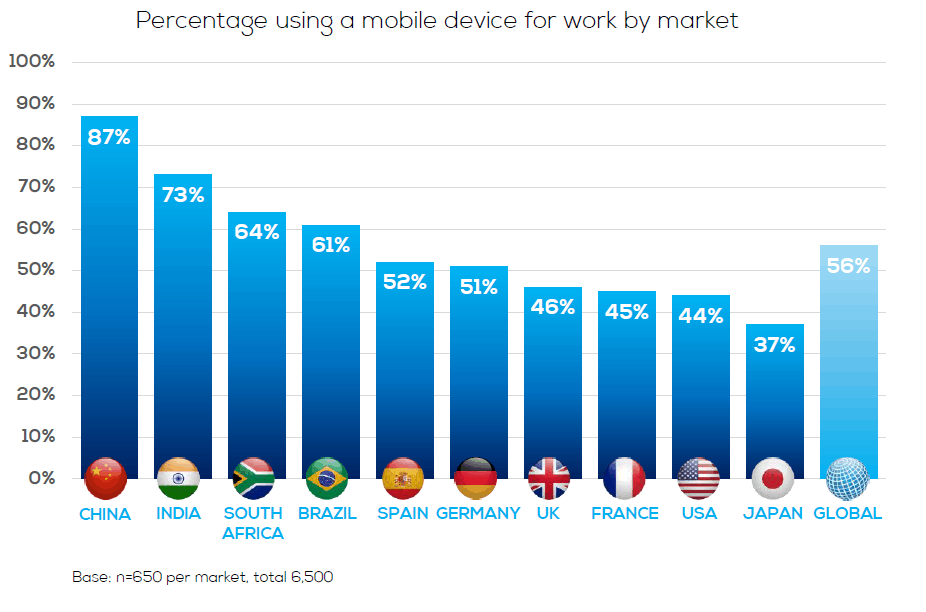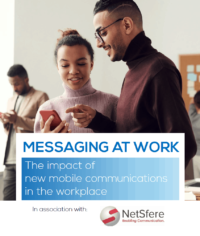Consumer messaging apps overtake email for work communication via mobile, as new MEF study reveals privacy and security risks faced by employers and employees
Workplaces are changing dramatically with desks, PCs and fixed-line phones being replaced by mobile working. The mobile centric workplace is ushering new behaviours and trends including a shift towards consumer messaging apps like WhatsApp, Facebook Messenger, Viber and Line for business communications.
While the use of consumer messenger apps in the workplace has been proven to drive productivity gains, many employers are currently unprepared for the data control, security and compliance issues that arise from the new era of the mobile workforce.
MEF’s latest consumer research finds that 56% of smartphone owners globally now use their mobiles for work. The figures are even higher where fixed-line infrastructure is limited including China (87%), India (73%), South Africa (64%) and Brazil (61%).
Consumer messaging apps are the most popular work communication channel on mobiles (50%), ahead of email (47%) and text messaging (36%) with the most popular work activities on mobile including sharing documents (29%), contacts (25%) and pictures (23%).
Despite the widespread use of mobiles for work, most (57%) mobile users cannot categorically say whether the data shared by them and their colleagues via mobile is secure.
The 10-market study carried out in association with Netsfere found that just under half of employers who take some form of action try to mitigate these risks by stipulating a preferred messaging app for employees to use.
The study also revealed that employers often make ad-hoc requests to protect sensitive information in mobile messaging apps, likely in order to maintain compliance with personal data regulations. For example, among employees who have been subjected to such requests, a third (32%) have been asked to remove a colleague from a messaging chat group once they had left the company.
Roughly a quarter (21%) have been asked to delete all work-related information from their phone, while a fifth (19%) have been requested to delete certain contacts from their phones.
MEF’s CEO Dario Betti, said: “The era of the mobile workforce has arrived, yet alarmingly when it comes to maintaining data protection compliance, privacy and security standards few companies are adequately prepared. There is a significant opportunity for companies to adopt a more comprehensive and data-centric approach as mobile working will only increase.”
CEO and President, Infinite Convergence Solutions Inc, Anurag Lal added: “As in many aspects of life, consumer messaging apps have become the preferred channel of communications with the workplace and while many organisations benefit from the productivity gains afforded by mobile messaging, they are also playing catch-up when it comes to data protection and compliance issues. Through improved, encrypted security measures – all businesses can safely embrace and harness the benefits of the connected workforce.”
Messaging at Work – Webinar –17th March
The Impact of new mobile communications in the workplace
This exclusive briefing features MEF’s CEO Dario Betti and Harsh Mamgain, Product Management of Infinite Convergence discussing the findings from MEF’s 10-country consumer insights study to explore the impact of new mobile communications in the workplace.







